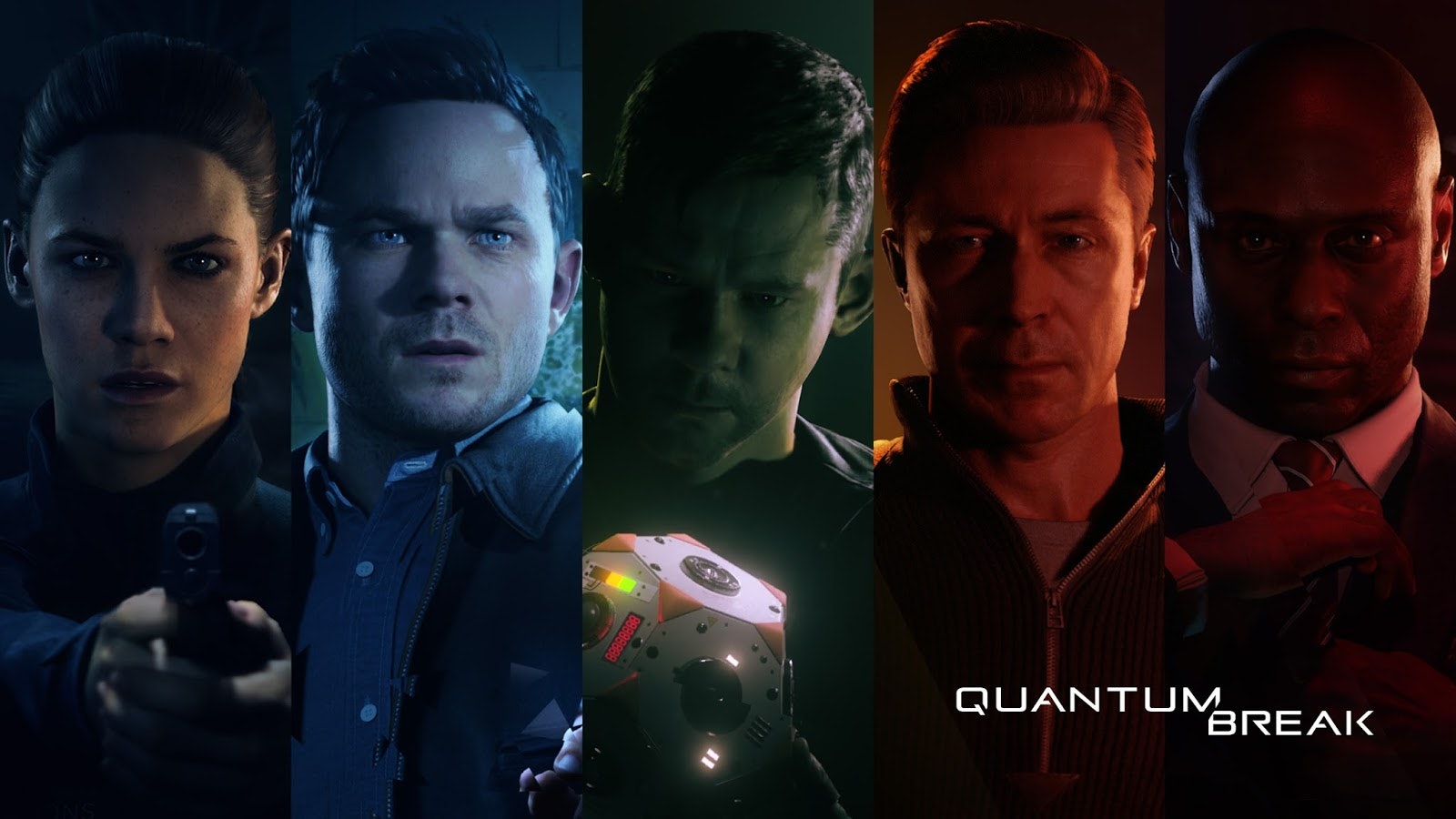
TIME TRAVEL STORIES always run the risk of falling into a gaping plot hole so big that it totally destroys the narrative. Between paradoxes and nuanced theories of space-time, things can go off the rails rather easily — even more so in video games.
Remedy Entertainment’s 2016 game, Quantum Break, assumes that the past cannot be changed, incorporating the Novikov self-consistency principle. This foundational theory leads to some of the most satisfying and airtight time travel rules ever represented in a video game.
Quantum Break follows a young man named Jack Joyce as he assists his friend Paul Serene in a time travel experiment at a university that goes completely wrong. Paul’s time machine malfunctions, causing a Fracture that randomly desynchronizes time itself and produces Stutters, where time becomes frozen for short periods.
The resulting explosion from the time machine infects both Paul and Jack with Chronon particles, giving them different time-based abilities. Paul gets flung into the far future into “The End of Time” where time has collapsed into a singularity because of the Fracture.
Yeah. It’s a lot. ...
Quantum Break has incredibly consistent time travel rules that make its story believable.
Shortly after, Paul returns to the present day notably older and with full control over his time travel powers. This older version is also the founder of Monarch Solutions, a corporation that specializes in time-travel technology, and its soldiers are Jack’s enemies throughout the game.
Armed with the knowledge of the past, present, and future, Paul accepts that the End of Time is inevitable. In contrast, Jack believes that he can change events in the past to prevent the End of Time from ever happening.
Jack and Paul spend the entire game at odds with one another as they travel through time in search of the Countermeasure, a device that can theoretically repair the Fracture or even counteract the effects of The End of Time.
“IT PROVES THAT THE GAME'S WRITERS HAD A HARDCORE APPRECIATION FOR REFLECTING ON SOME OF THE MOST MIND-BENDING THEORIES IN PHYSICS.”
Quantum Break does a fantastic job dramatizing the Schrödinger's cat thought experiment about quantum superposition where unperceived objects exist in a state of flux, meaning that unless we confirm whether or not a cat inside a box is dead, said cat is both at the same time.
In one of the game's biggest twists, Quantum Break presents a major character's presumed death, but if we don’t perceive it, does it really happen? We won't spoil the details here, but rest assured it's a compelling use of the concept for storytelling purposes. It proves that the game's writers had a hardcore appreciation for some of the most mind-bending theories in physics...
https://www.inverse.com/gaming/quantum-break-time-travel 